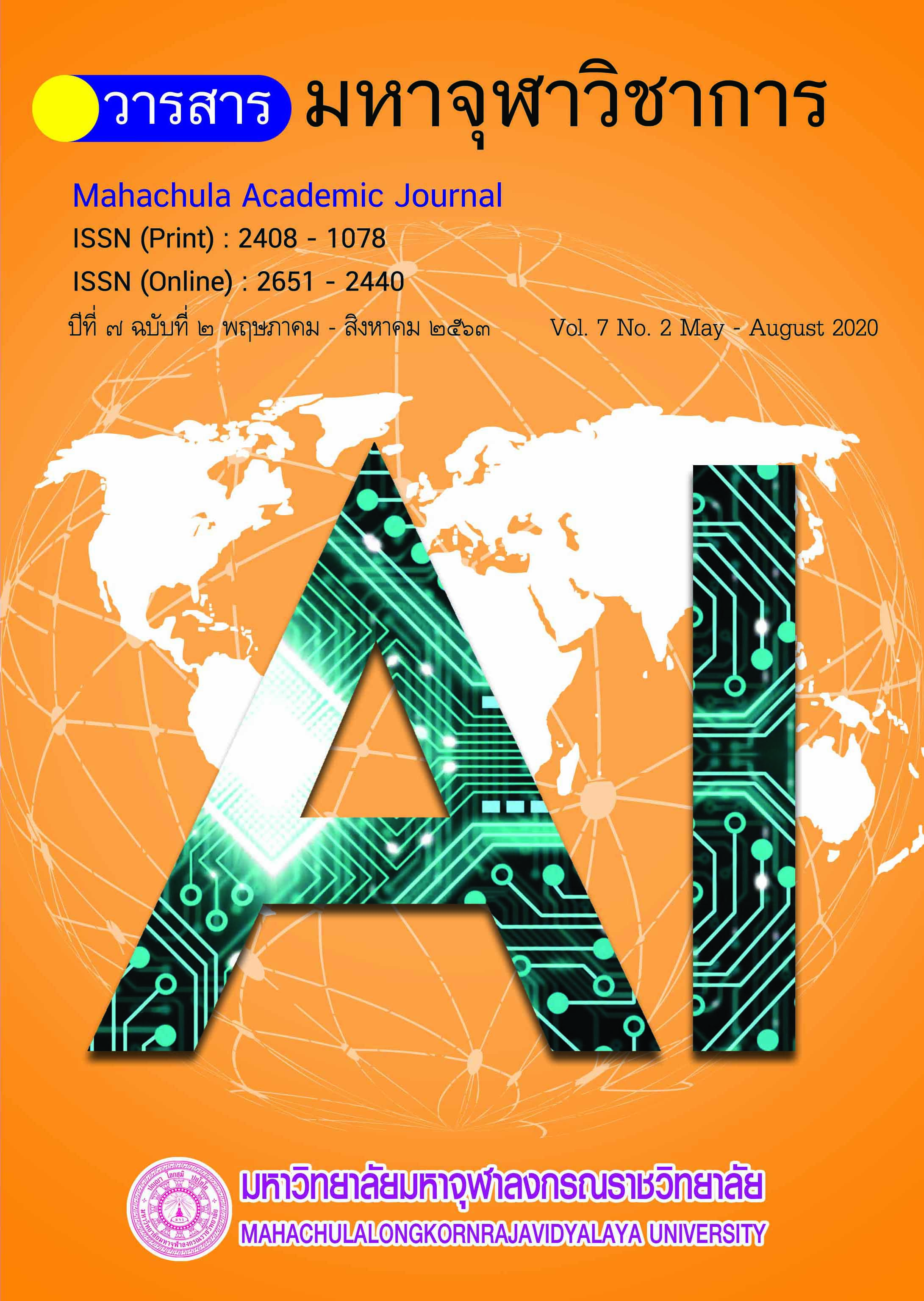Tourism Supply Chain Management Model for Sustainable Tourism Development Tourism Supply Chain Management Model for Sustainable Tourism Development
Main Article Content
Abstract
The purposes of this research are (1) study the state of the situation of tourism supply chain of Nakorn Si Thamarat Province (2) develop supply chain model of tourism for sustainable tourism development of Nakorn Si Thamarat Province. And (3) assess and confirm the success of tourism supply chain model.
The research used mixed methods research. The sample groups used in the research is personnel in this study, 340 samples from the three groups of stakeholders involved in the tourism of Nakorn Si Thamarat Province. The derived date were analyzed in Structural Equation Model (SEM). The major finding were as follows: 1) The Tourism supply chain were conditions about upstream, midstream and downstream factors for sustainable tourism development. 2) The result of the development of tourism supply chain model for sustainable tourism development. It was found that causal relationship model of tourism supply chain management. And 3) The structural equation model of in tourism supply chain management model for sustainable tourism development and the researcher had developed suitability to empirical data.
Article Details
References
ทัศนีย์ สิราริยกุล. “การจัดการโซ่อุปทานสำหรับการท่องเที่ยวในชุมชนบ้านเชียงจังหวัดอุดรธานี”. วารสารรัชต์ภาคย์. ปีที่ ๑๑ ฉบับที่ ๒๔ (กันยายน-ธันวาคม ๒๕๖๐).
ปณัชญา ลีลายุทธ และ บุญเลิศ โอฐสู. “จริยธรรมและจรรยาบรรณสื่อมวลชนยุคสื่อดิจิทัล”. วารสารบัณฑิตศึกษาปริทรรศน์. ปีที่ ๑๓ ฉบับที่ ๒ (พฤษภาคม-สิงหาคม ๒๕๖๐): ๑๗๖-๑๘๘.
สุณีย์ ล่องประเสริฐ และปลื้มใจ ไฟจิตร. “จริยธรรมทางธุรกิจการท่องเที่ยวในอำเภอเกาะสมุย จังหวัดสุราษฎร์ธานี”. วารสารวิทยาการจัดการ. ปีที่ ๓ ฉบับที่ ๑ (๒๕๕๙): ๑๔๙-๑๗๑.
ศรีสมรัก อินทุจันทร์ยง ลัดดาวัลย์ แก้วกิติพงษ์ และปิเตอร์ รักธรรม. “การศึกษาโซ่อุปทานและตัวแบบข้อมูลในอุตสาหกรรมการท่องเที่ยวของประเทศไทย”. สุทธิปริทัศน์. ปีที่ ๒๘ ฉบับที่ ๘๕ (มกราคม-มีนาคม ๒๕๕๗): ๓๕๓.
แสงแข บุญศิริ, เทิดชาย ช่วยบำรุง และวรรักษ์ สุเฌอ. รายงานวิจัยฉบับสมบูรณ์ การเสริมสร้างศักยภาพด้านการพัฒนาการท่องเที่ยวของคณะกรรมการพัฒนาการท่องเที่ยวประจำเขตพัฒนาการท่องเที่ยว ๕ เขตของไทย. กรุงเทพมหานคร: คณะการจัดการการท่องเที่ยว สถาบันบัณฑิตพัฒนาบริหารศาสตร์, ๒๕๖๑.
อุษาวดี พลพิพัฒน์. “การท่องเที่ยวแบบยั่งยืน: กรณีศึกษาการท่องเที่ยวเชิงนิเวศโดยชุมชนในประเทศไทย”. จุลสารการท่องเที่ยว. ปีที่ ๒๑ ฉบับที่ ๔ (ตุลาคม - ธันวาคม ๒๕๕๔): ๒๕.
กระทรวงการท่องเที่ยวและกีฬา. ยุทธศาสตร์การท่องเที่ยวไทย พ.ศ. ๒๕๕๘–๒๕๖๐.
กรมการท่องเที่ยว. “ข้อมูลสถิตินักท่องเที่ยว”. [ออนไลน์]. แหล่งที่มา: http://www.tourism.go.th/ (๑๐ ธันวาคม ๒๕๖๐).
กอบกาญจน์ วัฒนวรางกูร. “การท่องเที่ยวแห่งประเทศไทย(ททท.)”. [ออนไลน์]. แหล่งที่มา: https://tattourismjournal.files.wordpress.com/2016/01/7_tourism_forum_2016.pdf,๒๕๕๘ [๒๒ กันยายน ๒๕๖๑].
“องค์การบริหารการพัฒนาพื้นที่พิเศษเพื่อการท่องเที่ยวอย่างยั่งยืน (องค์การมหาชน อพท)”. [ออนไลน์]. แหล่งที่มา: www.dasta.or.th/www.facebook.com/SaiJaiPaiTiew. [๒๓ กันยายน ๒๕๖๑].
Diamantopoulos, A. and Siguaw. A.D. Introducing LISREL: A guide for the uninitiated. London: Sage Publications, 2000.
Hair, Jr., J. F. Black, W. C., Babin, B. J. Anderson, R. E., & Tatham, R. L., Multivariate Date Analysis 7th ed. Upper Saddle River NJ: Pearson Prentice Hall, 2010.
Kaukal M, Hopken W, & Werthner H. An approach to enable interoperability in electronic tourism markets. (8th) European Conference on Information System, (ECIS 2000), 2000.
Piboonrungroj P and Disney S.M., Tourism Supply Chains: A Conceptual Framework. Exploring Tourism III: Issue in PhD Research. In: Proceeding of the PhD Networking Conference. Christel DeHaan Tourism and Travel Research Institute, (July 2009)
Tapper R. and Font X. Tourism supply chains. Report of a desk research project for the travel foundation. Leeds Metropolitan University, 2004.
Tourism Concern. Beyond the Green Horizon: Principles for Sustainable Tourism. United Kingdom: World Wildlife Fund, 1992.
World Tourism Organization Indicators for sustainable development for tourism destinations: A guide book. Madrid: WTO, 2004.
Zhang Y. and Murphy P. Supply-chain considerations in marketing underdeveloped regional destinations: A case study of Chinese to Goldfields region of Victoria. Tourism Management, 2009.


